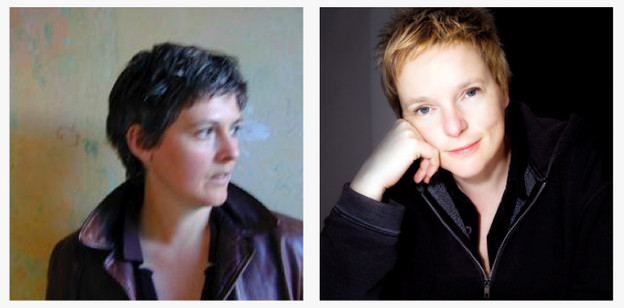The surprise of love and writing
An interview with Caroline Bergvall by Rozalie Hirs

Note: This interview with Caroline Bergvall took place at our first meeting on 2 December 2010, Birkbeck College, Gordon Square, London. We low-fi recorded the interview in Audacity through the inbuilt microphones on a Mac. I edited the sound files in Protools (Amsterdam, March and November 2011). — Rozalie Hirs
1 [MP3]
The surprise of love is its most rigorous demand. Love as practice, writing, reading as practice, and the demands of that. To accept love, reading, writing, and what it demands of you. Transformative areas as practice. Changing the way you think about yourself, your body, language, culture. Where the work or a question raised by the work or maker has taken the work and the maker. Daring and courage. An existential dimension of the work.
Solid rock of text. Mass. Excepting the failure of habits, familiarities. Memory failures. Coming to recognize acquired values. In situ. First: erotic escalation at the center, telephone numbers at the side. Then: sexual experience as mass, dark matter. Unreadable signs. Graphic language. Graphic signs, rhythm, becoming visual structuring. Purely visual, an unreadable mass in itself. How sounds of the typewriter/computer keyboard turn into accidental sign structures, paragraphs. Visual stuttering, hesitations.
5 [MP3]
The way female sexuality is viewed in our culture. Cindy Sherman. Louise Bourgeois. Disintegration. The way women have handled violent sexuality. Survival modes, modes of resistance, copying strategies, tactics. Games. Surrealism. “Dolly” as participant, commentator. A crude character. Rawness. Throwaway, angry, disrespectful. No attempt at reflection. Hybrid beings, contemporary sexual hybrid identities. Imposed identities. Compounding. Misogyny. Disgust. Morbidity, dwelling in morbid bodily behaviors.
6 [MP3]
Examining the map. Connections between internal and external transport. Internal and external realities. Setting up a process with a strict set of rules, an experience. Shaping experience. How is experience formed? Performative premise of nonverbal actions. Creating a separate preparation of writing through sound, physical movement, structures. The inside and outside of experience. Spaces that are different from literary spaces. Experiences that cannot be expressed verbally.
7 [MP3]
Failure. Collapsing of a performance or a collaboration. Figures, figures of speech, reflecting on itself. Interest in the notion of failure. Collaborations failing on a human level, on an artistic level. Feedback loops, reflection, fractal structure. After failure, you find yourself somewhere else, unexpected.
8 [MP3]
Good and bad collaborations. Chance elements running through a collaboration. Cage and Cunningham as an example. (Not) knowing your collaborative partner.
9 [MP3]
Found objects. On the street, the bus. Take a book with you, take a line. Quoting as a practice. Intentionality. Displacement. Performative aspect of reading, finding.
10 [MP3]
Starting points: the comparative, the plus or the minus, simplistic identifiers, bestiary. Comparative ways of behaving, of judging, defining. Handling boundaries. The girl, not yet assimilated into the gendering of a woman. Chart of comparisons, setting up repetitions. Removing the human from the bestiary, removing the girl.
11 [MP3]
(Varied) repetition. The same and not the same. Metonymic processes. Translation — its cultural demands. The ideological aspects of a translation. What is the transposition of a text into another language? Methods for examining cultural traffic, cultural exchange. Set of variations. What happens if one changes a node? Questioning the ideology of translation. Being inside the respective epoque of a translation. Connection with ideology or cultural practice. Variation.
Amsterdam, 30 January 2012
Edited by a.rawlings